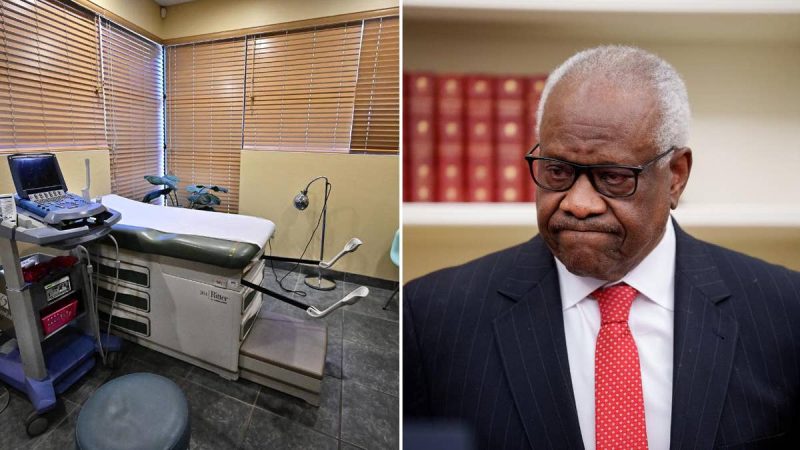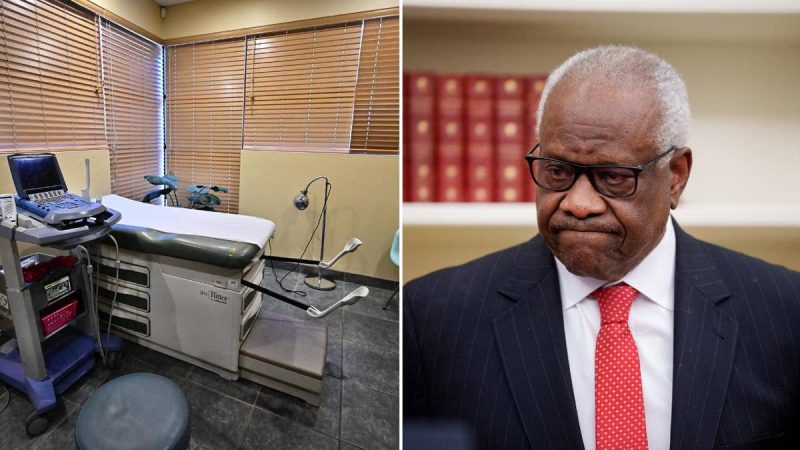
The U.S. Supreme Court declined Monday to hear a pro-life challenge against protest restrictions around abortion clinics in Illinois, as activists argued the laws infringe on their First Amendment rights, a decision met with a fiery dissent by Justice Clarence Thomas.
The court rejected appeals from Coalition Life, which describes itself as ‘America’s Largest Professional Sidewalk Counseling Organization’ in New Jersey and Illinois, which had challenged previous lower court rulings that dismissed their lawsuits.
Pro-life activists in the case argued that ‘buffer zones’ – which were established after a previous Supreme Court decision in Colorado to shield patients from harassment – around abortion clinics violate their First Amendment rights to free speech.
Thomas and fellow conservative Justice Samuel Alito dissented, with Thomas arguing SCOTUS should have taken up the case, Coalition Life v. City of Carbondale, Illinois. Alito did not explain his reasoning in writing.
The votes of four justices are required to grant a writ of certiorari to bring a case up for review.
Thomas said Hill v. Colorado ‘has been seriously undermined, if not completely eroded, and our refusal to provide clarity is an abdication of our judicial duty.’ He added that he would’ve used the Coalition Life case to override the Hill decision.
‘This case would have allowed us to provide needed clarity to lower courts,’ Thomas wrote in his dissent.
In that case, decided in 2000, the Supreme Court upheld a Colorado statute that prohibited individuals from ‘knowingly’ approaching within eight feet of another person within 100 feet of a healthcare facility entrance, without consent, for purposes such as passing out literature, displaying signs, or engaging in oral protest, education, or counseling.
The court determined this law was a content-neutral regulation of the time, place and manner of speech, serving the state’s interest in protecting individuals entering healthcare facilities from unwanted communication. The decision was 6-3, with Justices Thomas, Antonin Scalia and Anthony Kennedy dissenting.
The City of Carbondale, in southern Illinois, saw an uptick in pro-life protests after two clinics opened following the overturning of Roe v. Wade in 2022. As such, the city passed ordinances modeled after Colorado’s statutes.
Urging the court to revisit the Hill precedent, Thomas quoted from an excerpt in Alito’s majority opinion in Dobbs v. Jackson Women’s Health Center – the case that overturned Roe v. Wade – where he noted that abortion-related cases on other legal precedents had ‘distorted First Amendment doctrines.’
One key case that followed Hill v. Colorado is McCullen v. Coakley, where the Supreme Court ruled in 2014 on a Massachusetts law that established a 35-foot buffer zone around abortion clinics. The high court found that while the state had a legitimate interest in protecting patients and staff from harassment, the law was overly broad, included too much space and infringed on free speech rights.
The court struck down the law, distinguishing it from the Hill decision.
In 2019, New York upheld a 15-foot buffer zone law outside of clinics, and similar laws have been debated in states like California, Maryland and Washington.
Fox News Digital has reached out to Coalition Life for comment.

